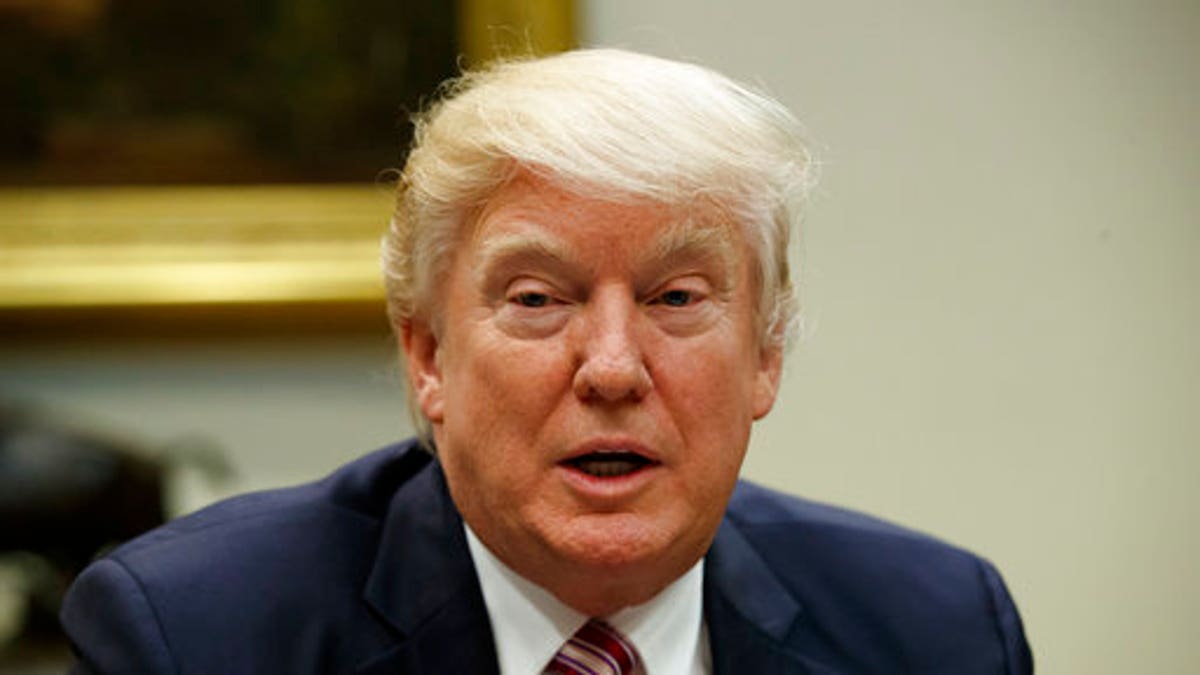
President Donald Trump speaks during a meeting on women in healthcare, Wednesday, March 22, 2017, in the Roosevelt Room of the White House in Washington. (AP Photo/Evan Vucci) (Copyright 2017 The Associated Press. All rights reserved.)
Just one year ago, as Donald Trump’s Republican primary opponents were uniformly dropping out of the 2016 Presidential race, many long-time party members feared their party’s presumptive nominee would be unable to unite the party by Election Day.
Riding a populist wave through November though, Trump would manage to allay those concerns in a remarkable upset victory.
Today, however, the Republican postponement of the American Health Care Act signals not only that Trump is still unable to unite his party, but that his ability to lead and deliver on his many promises is in serious jeopardy.
Given this postponement, the Republicans are now forced to delay tax reform, delay any and all plans for infrastructure investment, and, of course, delay repealing and replacing Obamacare with a new healthcare program, which in the President’s words would provide, “insurance for everybody.”
As a result of this log-jam, the favorable economic data and stock market rallies Trump has frequently cited as early successes may very well screech to a halt too.
In the ongoing healthcare debate, it is true that Trump and the Republicans have been bogged down by an anti-establishment, anti-media narrative, yet that “fake news” spiral is largely of their own making.
Stemming from both the White House and Congressional Republicans, unfounded accusations of surveillance and perpetuating controversy around the President’s ties to Russia does absolutely nothing to deliver reforms to hard-working Americans whose quality of life is at risk in our broken healthcare system.
Ultimately, the Republicans’ inability to take action under Trump’s leadership on issues and policies that directly impact the voters who sent them to Washington, let alone the millions of moderate Americans seeking tax relief and pro-growth economic reforms, will have significant consequences.
The postponement on healthcare in particular comes after multiple weeks in which seemingly the only thing the Republican Conference could make clear to the public was that they could not agree on anything.
One month ago, many believed that Trump’s address to a joint session of Congress would mark a new beginning for compromise within the Republican party and forge cooperation across party lines.
Yet today’s developments underscore that Trump has been unable to build broad support for a national reforms agenda that delivers on his, or any Republicans’ for that matter, important promises to their voters.
Above all, the Trump White House and Republican-led Congress need to promote policies that work.
If as many as 14 million people will conceivably no have health coverage one year from today, and if the healthcare exchanges are going to fall apart, then the Republicans clearly have not put forward a serious plan to fix healthcare in this country.
Right now, it seems the one thing Republicans have going for them is the Democratic Party’s terribly unsound strategy of resistance at every step.
If the Republicans can find opportunities to truly, forge compromise, and actually get something accomplished, they can quickly get back on track with Trump’s pro-growth agenda.
The importance of developing a new Republican strategy on healthcare reform could not be more clear. Trump and Republicans in Congress must go to the American people with a bipartisan plan that achieves the goals of affordable, easy to access healthcare. That is something they can sell.
